In the 80-year journey of building and developing Vietnam News Agency, there has been an inseparable part for 65 years, which is the Liberation News Agency.
Established and carrying out the glorious mission of information, maintaining a continuous flow of information from the fierce Southern battlefield to a wide range of domestic and international readers, the Liberation News Agency has made many contributions to the national liberation struggle and has been awarded the title of Hero of the Armed Forces by the Party and State.
After a short time of preparing forces and means, at exactly 7:00 p.m. on October 12, 1960, in Chang Riec forest ( Tay Ninh ), through a 15W transmitter, the Liberation News Agency broadcast its first news bulletin.
The Vietnamese news bulletin was titled Giai Phong Xa (GPX), broadcast for foreign use with the English call sign LPA on 31m. Under the headline was written “Official Voice of the Patriots of South Vietnam.”
Since then, the Liberation News Agency has accompanied forces throughout the South, maintaining a smooth flow of information in all conditions, even the most severe times.
“The current never stops”
In its introduction, the Liberation News Agency solemnly announced to its compatriots and friends around the world : “The Liberation News Agency is the official mouthpiece and news agency of the National Liberation Front of South Vietnam, with the task of disseminating news and rich fighting experiences of compatriots everywhere, reflecting the growing prestige of the revolutionary movement and the decline of the ruling group in the South.”
Two months later, on December 20, 1960, the National Liberation Front of South Vietnam was established. The Liberation News Agency quickly transferred all documents of the Front to the Vietnam News Agency, from there broadcast to the world to announce a political organization with the right to directly lead the struggle to liberate South Vietnam to encourage and strongly rally all classes of patriotic people in the South to fight against the US Imperialists and their lackeys.
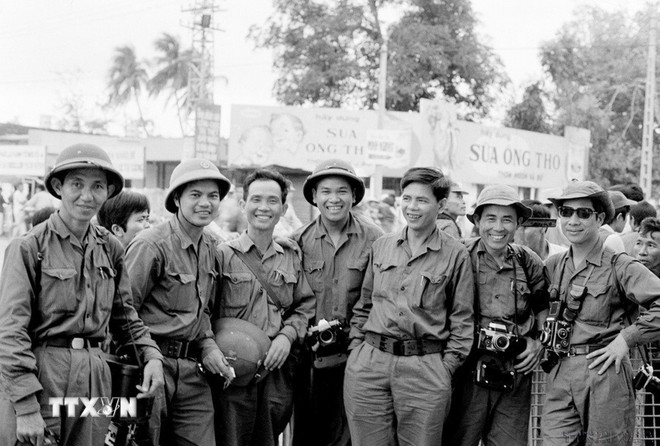
Recalling the first news broadcast of the Liberation News Agency on October 12, 1960 at the Chang Riec base, telegrapher Doan Van Thieu, former Deputy Head of the Liberation News Agency Office, said: At that time, the unit was newly established and had no physical facilities. The only people present at that first news broadcast were Ba Do (Do Van Ba), Dung (Phung Van Dung), Song (Dang Van Song), Khue (Vo Van Khue), and Phia (Truong Van Phia).
The first bulletin of the Liberation News Agency was broadcast by telegraph operators using a Chinese transmitter. There were no tables or chairs yet, so everyone sat on a canvas tent. At that time, except for Ba Do, the rest were all newbies who knew nothing about telegraph techniques. However, from that day on, our bulletins were continuously broadcast.
During the period 1960-1972, the Liberation News Agency continuously changed its base from Tay Ninh war zone to Ma Da (war zone D, Dong Nai), sometimes at the border or temporarily took refuge in neighboring Cambodia, then returned to Lo Go war zone (Tay Ninh) when the US imperialists expanded the war in Indochina.
“During the long journey, on the march, when it was time to broadcast the news, the technicians stopped to set up the transceiver, broadcast the news to the General Office in Hanoi, then packed up to continue marching. When the enemy swept into the base, the cadres, reporters, and technicians of the Liberation News Agency took up arms to fight to protect the base, working facilities, and ensure smooth communication with the General Office in Hanoi and the localities,” former Liberation News Agency telegrapher Doan Van Thieu shared.
Having also gone through this period, journalist Thanh Ben, former reporter of the Liberation News Agency, acknowledged that the most difficult thing was having to move the base, causing all work and activities to be disrupted. However, there was one thing that could not be disrupted: the news broadcast had to uphold the order of "The electricity never stops" of the Liberation News Agency.
“During my time in the war zone, I had to move away from the base 8 times. The hardest part was that the telegraph operators and machine repair technicians had to carry tons of heavy generators, plus a bunch of tools and equipment on their shoulders, through forests, wading through streams day and night, during storms,” journalist Thanh Ben recalled.
Overcoming difficulties to complete the mission
According to Mr. Doan Van Thieu, the work of a press agency telegrapher at that time was very dangerous because it was associated with signals and information transmission and reception machines, so ensuring confidentiality and safety was a high priority. "Without the smooth and close coordination between the officers in the unit and in each position such as the person on guard duty, protection, observing from above, the person urgently turning the generator, the person receiving and transmitting information, the task would not be completed," Mr. Doan Van Thieu shared.
“These teams and groups always went together and were indispensable to each other during the entire process of writing and transmitting news about the R war zone, especially news reporters and telegraphers. Photojournalists could work independently, then go down to the basement to develop film and send it back to the R war zone via the liaison route,” said journalist Ha Huy Hiep, former telegrapher of the Liberation News Agency.
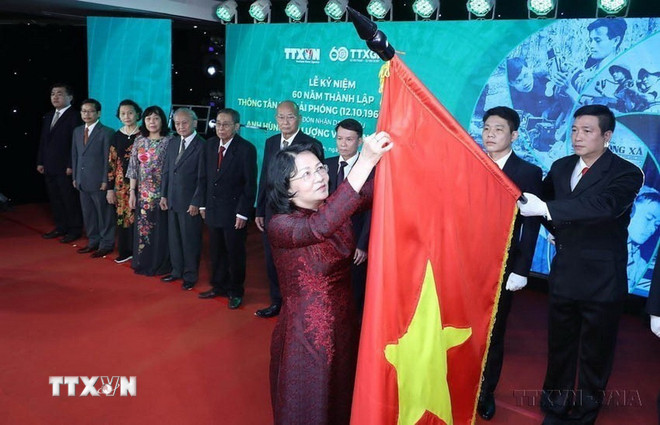
In difficult conditions of equipment, "lack of equipment", constantly having to move the base, technicians and telegraph operators always tried to find optimal solutions to carry out the best transmission and reception of information, without "losing signal" with the base, the General Office in Hanoi.
Before the teletype or telephoto machine was introduced to the South, the Liberation News Agency's telegraph operators from 1960 to 1972 had to use a manipulator and a hand-cranked generator (called a ragono machine) to transmit Morse signals.
Sharing specifically about the generator used, former telegrapher of the Liberation News Agency Doan Van Thieu said that the technical staff and telegraphers had to work very hard to turn the generator by hand to get the electricity to receive and transmit information.
A news report of about 400 words also makes the ragono spinner's hands tired because of the continuous spinning. While working, he "groped" to learn about the equipment and machines and once Mr. Thieu was electrocuted and fell backwards while testing the electricity with his hand on a 15W generator because he did not have the tools to check. The incident made everyone panic.
“At that time, the Chinese generator was very heavy. We were all young men, but each of us could only turn it for about 20 minutes before sweating profusely. We had to take turns turning it to ensure a stable power supply,” Mr. Doan Van Thieu recalled.
In order to overcome the lack of equipment as well as the limitations of machinery, the team of technicians and telegraphers researched, innovated and improved to complete the task well. To avoid having to crank by hand, journalist Doan Van Thieu and his colleagues at that time had the initiative to create an additional stand, seat and handle above to convert the machine to pedal by foot, which is both less tiring and has a more stable current.
With the determination and efforts of the telegraph "soldiers", from the "wooden manipulator" and the reused notebooks, the trainee telegraphers quickly became proficient telegraphers.
Mr. Doan Van Thieu shared: “After only 6 months, we were proficient in sending and receiving messages, but receiving and receiving messages was a little slower. Basically, after 8-9 months, everyone was proficient. Later, the first batch of telegraph operators all matured and became local station chiefs.”
With the slogan: "The electric wave never stops" in any situation, whether fighting a sweep or moving to a base, the staff of the Liberation News Agency, along with Vietnam News Agency reporters present in the Southern battlefield, still maintain working sessions to ensure smooth communication./.
Source: https://www.vietnamplus.vn/thong-tan-xa-giai-phong-tieng-noi-cua-nhung-nguoi-yeu-nuoc-o-mien-nam-post1061168.vnp


![[Photo] The 5th Patriotic Emulation Congress of the Central Inspection Commission](https://vphoto.vietnam.vn/thumb/1200x675/vietnam/resource/IMAGE/2025/10/27/1761566862838_ndo_br_1-1858-jpg.webp)

![[Photo] Party Committees of Central Party agencies summarize the implementation of Resolution No. 18-NQ/TW and the direction of the Party Congress](https://vphoto.vietnam.vn/thumb/1200x675/vietnam/resource/IMAGE/2025/10/27/1761545645968_ndo_br_1-jpg.webp)
![[Photo] National Assembly Chairman Tran Thanh Man receives Chairman of the House of Representatives of Uzbekistan Nuriddin Ismoilov](https://vphoto.vietnam.vn/thumb/1200x675/vietnam/resource/IMAGE/2025/10/27/1761542647910_bnd-2610-jpg.webp)






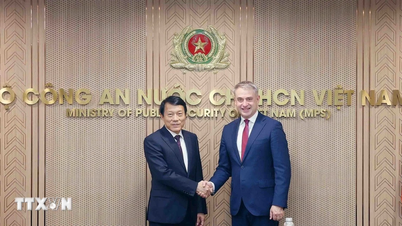
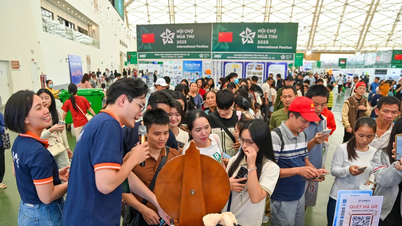
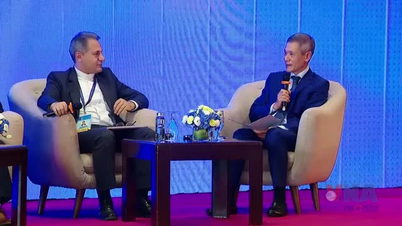
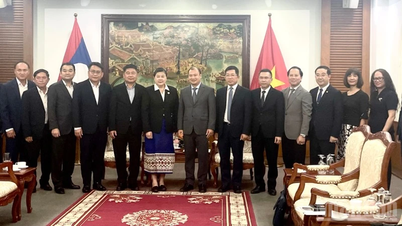

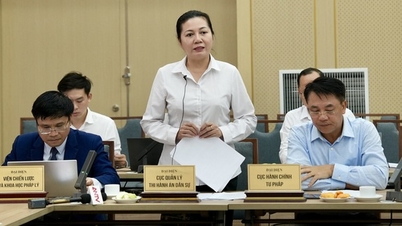

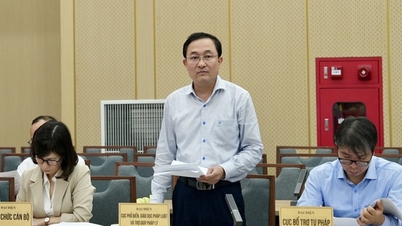
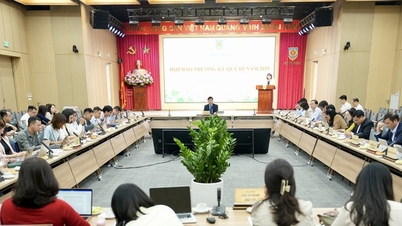


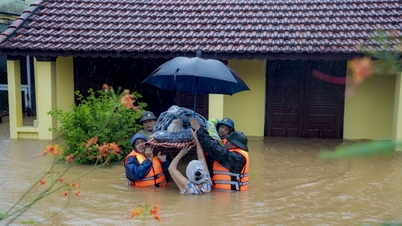





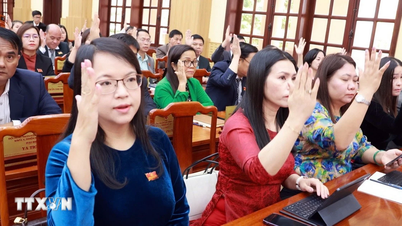

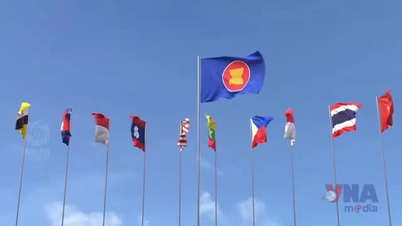
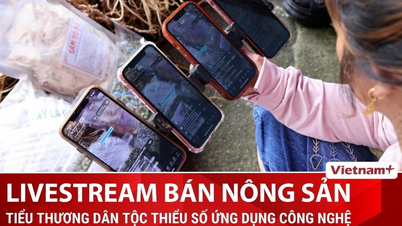








































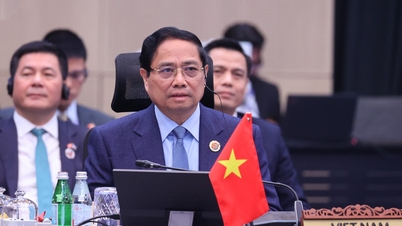





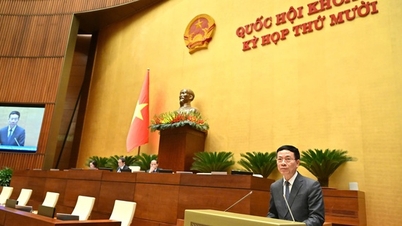
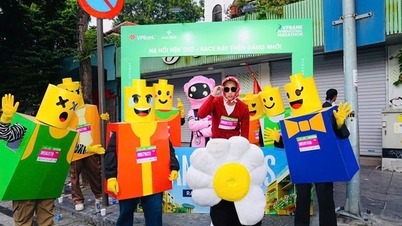


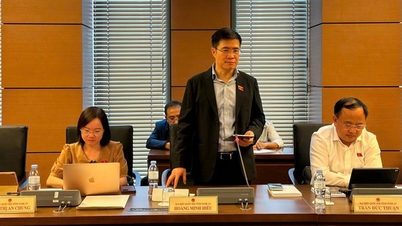
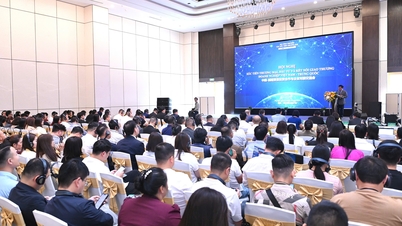

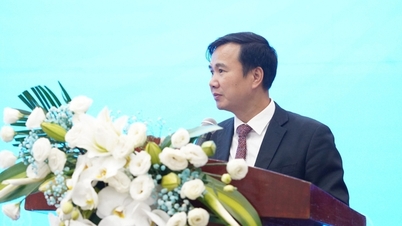
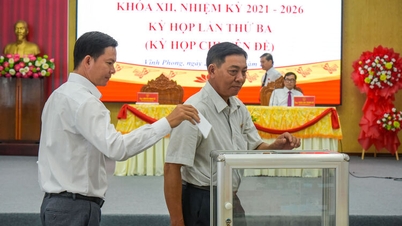

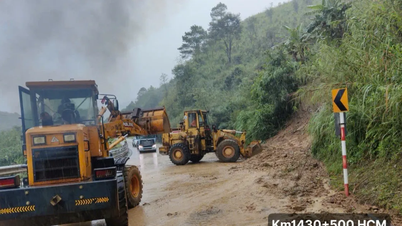

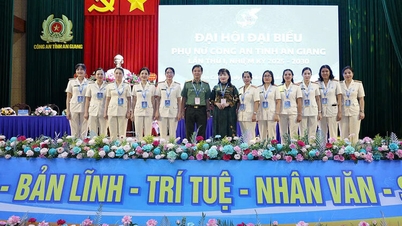
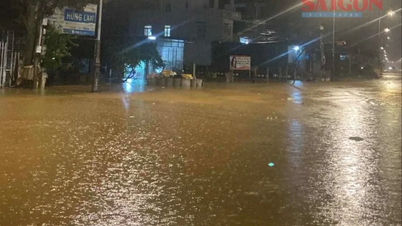
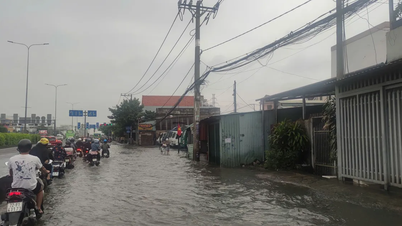












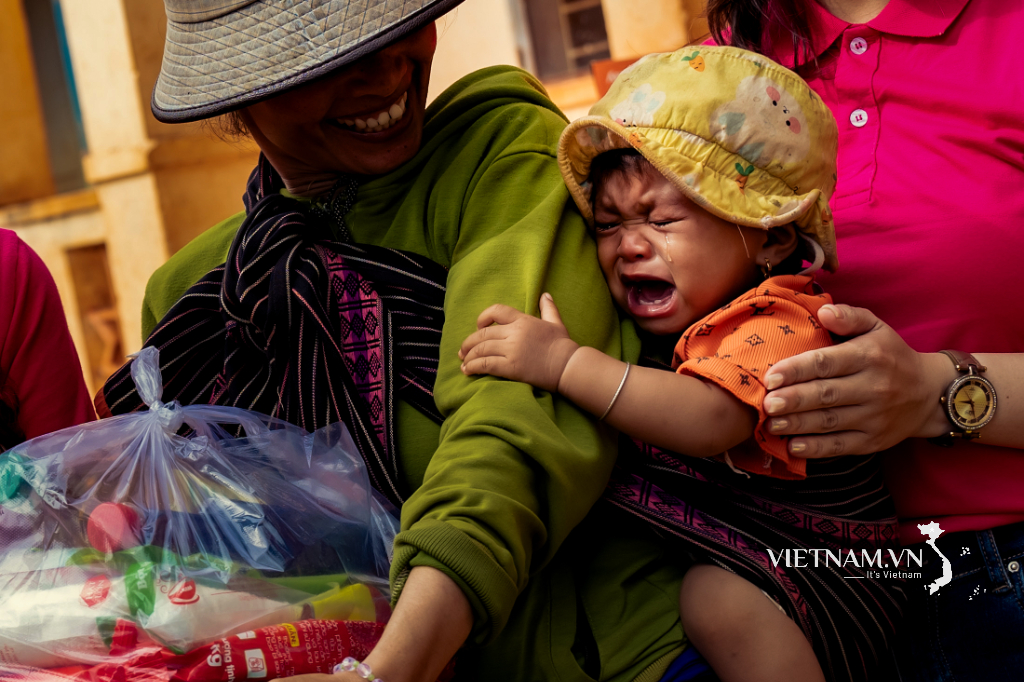
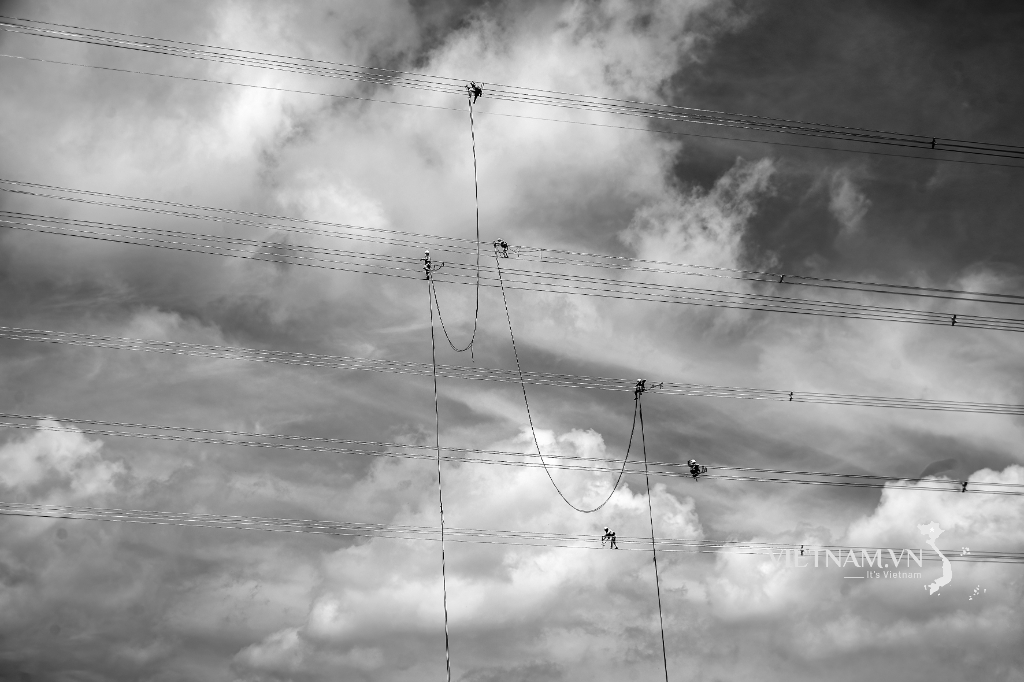
Comment (0)